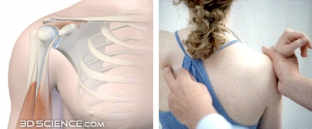Frozen Shoulder Research Study
Frozen Shoulder Research Study
The Study
This study was conducted under the guidance of Dr Bernie Carter PhD of the Metropolitan University of Manchester, who is our lead researcher in the UK. She is a well-respected researcher and lecturer in the field of pain research.
We used a mixed method, case study approach, based in the north-west using 5 experienced Bowen therapists. We obtained approval from the Lancaster Medical Ethics Committee which allowed a local GP to send medically diagnosed cases forward for treatment.
The treatment of individuals was assessed and Dr Carter catalogued the results with the help of the lead therapist in the project, Rick Minnery.
A summary of the results is shown below and the complete study can be obtained from the Bowen Association office.
Carried out by
Dr. Bernie Carter & Rick Minery
Research carried out at University of Lancaster
By Dr. Bernie Carter, Principal Lecturer in Children’s Nursing – The Clinical Nursing Practice Research Unit

The Results
A significant improvement in shoulder mobility and associated function for all participants, with 70% of participants regaining full mobility (equal to the non-affected side) by the end of the treatment.
There were markedly reduced pain intensity scores and pain quality descriptors for all participants, although some participants recorded scores of 1-3 that they described as a slight ache to a mild pain. Participants at the end of the study no longer used the intense and invasive pain descriptors.
Bowen cannot, from this study, claim to be 100% successful, but it demonstrated a significant improvement for participants, even those with a very longstanding history of frozen shoulder. For the majority of participants it provided a good outcome particularly in relation to improved mobility.
All participants experienced improvement in their daily activities. None of the participants reported that their pain was having a severe impact on their daily activities, and there was a decrease in the reports of mild and moderate impact by the end of the treatment.
For the majority of participants (even those with a long standing problem) it provided a good outcome particularly in relation to improved mobility. In terms of the outcome measures used in other studies – success rate, mobility, pain and functional status – Bowen can be seen to be a positive intervention and certainly one which participants in the study evaluated as being highly satisfactory.
